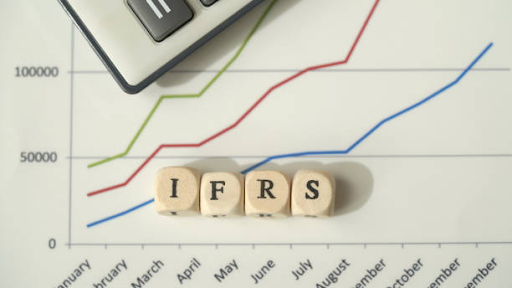
Environmental, Social, and Governance (ESG) considerations have become essential for businesses striving for long-term success. Companies worldwide increasingly recognise the need for transparency, accountability, and sustainability in their operations. This is where the IFRS platform plays a critical role. By providing standardised financial reporting frameworks, the IFRS platform ensures that ESG factors are consistently measured and disclosed, fostering sustainable growth and responsible business practices.
Understanding the IFRS Platform
1. What is the IFRS Platform?
The International Financial Reporting Standards (IFRS) platform is a globally recognised framework that sets accounting standards for financial reporting. These standards help businesses maintain transparency, comparability, and credibility in their financial statements. With ESG gaining prominence, the IFRS platform is evolving to integrate sustainability-related disclosures, enabling investors and stakeholders to make informed decisions.
2. How IFRS Supports ESG Initiatives
The IFRS Foundation has taken significant steps toward ESG integration by introducing the International Sustainability Standards Board (ISSB). This initiative aims to create a global baseline for sustainability disclosures, ensuring consistency across industries. By leveraging the IFRS platform, companies can align their ESG reporting with internationally accepted standards, enhancing stakeholder confidence and regulatory compliance.
3. Why Standardised ESG Reporting Matters
Standardised ESG reporting is crucial because it eliminates discrepancies in how businesses disclose their sustainability efforts. Without a unified approach, companies may present misleading or incomparable data, leading to confusion among investors and stakeholders. The IFRS platform addresses this challenge by offering a comprehensive and reliable framework that ensures uniformity in ESG reporting across industries and geographies.
The Importance of IFRS for Sustainable Growth
1. Enhancing Transparency and Accountability
A key component of ESG reporting is transparency. The IFRS platform mandates that companies disclose relevant financial and non-financial information, allowing investors to assess risks and opportunities associated with ESG factors. Standardised reporting reduces greenwashing and ensures that sustainability claims are backed by verifiable data.
Transparency also fosters accountability. When companies follow IFRS standards, they are required to disclose how their operations impact the environment, society, and governance structures. This encourages businesses to adopt ethical practices, reduce their environmental footprint, and contribute positively to society.
2. Facilitating Investor Confidence
Investors are increasingly considering ESG factors when making investment decisions. Companies that align their reporting with the IFRS platform provide investors with reliable, comparable data, making it easier to assess sustainability performance. This, in turn, attracts long-term investors who prioritise ethical and responsible business practices.
Additionally, the availability of standardised ESG data helps investors identify risks and opportunities more effectively. Businesses that demonstrate strong ESG commitments through IFRS-compliant reporting can access better financing opportunities and build stronger relationships with institutional investors who value sustainability.
3. Supporting Regulatory Compliance
Governments and regulatory bodies worldwide are tightening ESG-related compliance requirements. The IFRS platform provides a structured approach to meet these evolving regulations, ensuring that companies remain compliant with global sustainability reporting standards. Adopting IFRS-based ESG disclosures minimises the risk of legal repercussions and enhances corporate credibility.
Regulatory frameworks such as the European Union’s Corporate Sustainability Reporting Directive (CSRD) and the United States’ SEC climate disclosure rules are aligning with international reporting standards. Companies using the IFRS platform can streamline their compliance efforts and avoid potential fines or reputational damage associated with non-compliance.
Key ESG Aspects Addressed by IFRS
1. Environmental Impact Reporting
Companies must disclose their environmental impact, including carbon emissions, resource usage, and climate risks. The IFRS platform standardises these disclosures, enabling businesses to set and track sustainability goals effectively. Organisations that adhere to IFRS standards can provide stakeholders with clear insights into their environmental performance and demonstrate their commitment to sustainable practices.
2. Social Responsibility Metrics
Social factors, such as employee welfare, diversity, and community engagement, are essential for sustainable growth. The IFRS platform helps businesses report these metrics transparently, demonstrating their commitment to corporate social responsibility (CSR). Companies prioritising social impact can attract socially conscious investors and customers, strengthening their brand reputation and competitive advantage.
3. Governance and Ethical Business Practices
Good governance is a fundamental pillar of ESG. The IFRS platform ensures that companies disclose governance structures, executive compensation, and risk management strategies, promoting ethical business practices and stakeholder trust. Strong governance frameworks contribute to long-term stability and resilience, reducing the likelihood of corporate scandals or financial mismanagement.
4. Long-Term Business Strategy Integration
Sustainability is no longer an optional aspect of business strategy—it is a necessity. The IFRS platform enables organisations to integrate ESG considerations into their long-term planning. By aligning financial and non-financial reporting, businesses can develop comprehensive strategies that address economic, environmental, and social challenges while driving sustainable growth.
Conclusion
The IFRS platform is a cornerstone of ESG reporting, ensuring that businesses operate transparently, responsibly, and sustainably. By aligning with IFRS standards, companies can enhance investor confidence, meet regulatory requirements, and drive long-term growth. As ESG considerations become increasingly vital in the global business landscape, adopting the IFRS platform will be instrumental in fostering a sustainable future.




